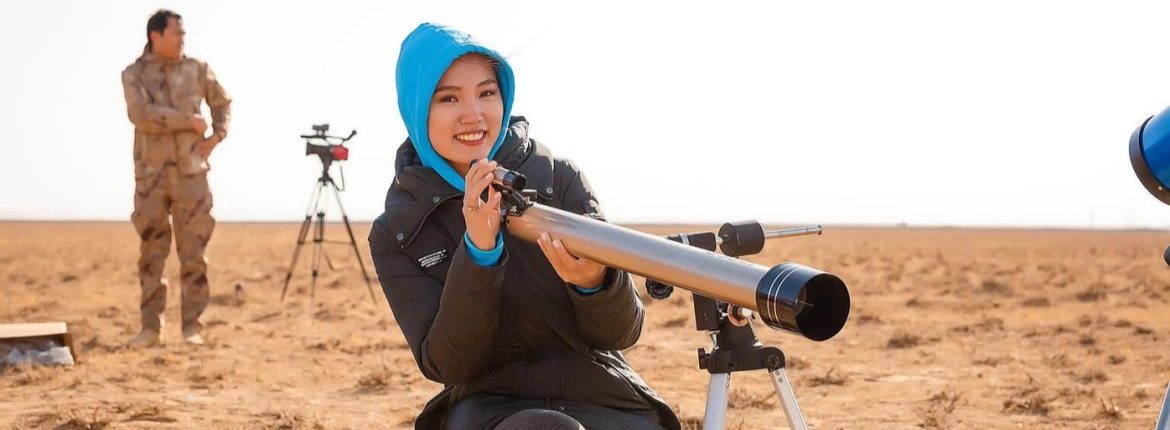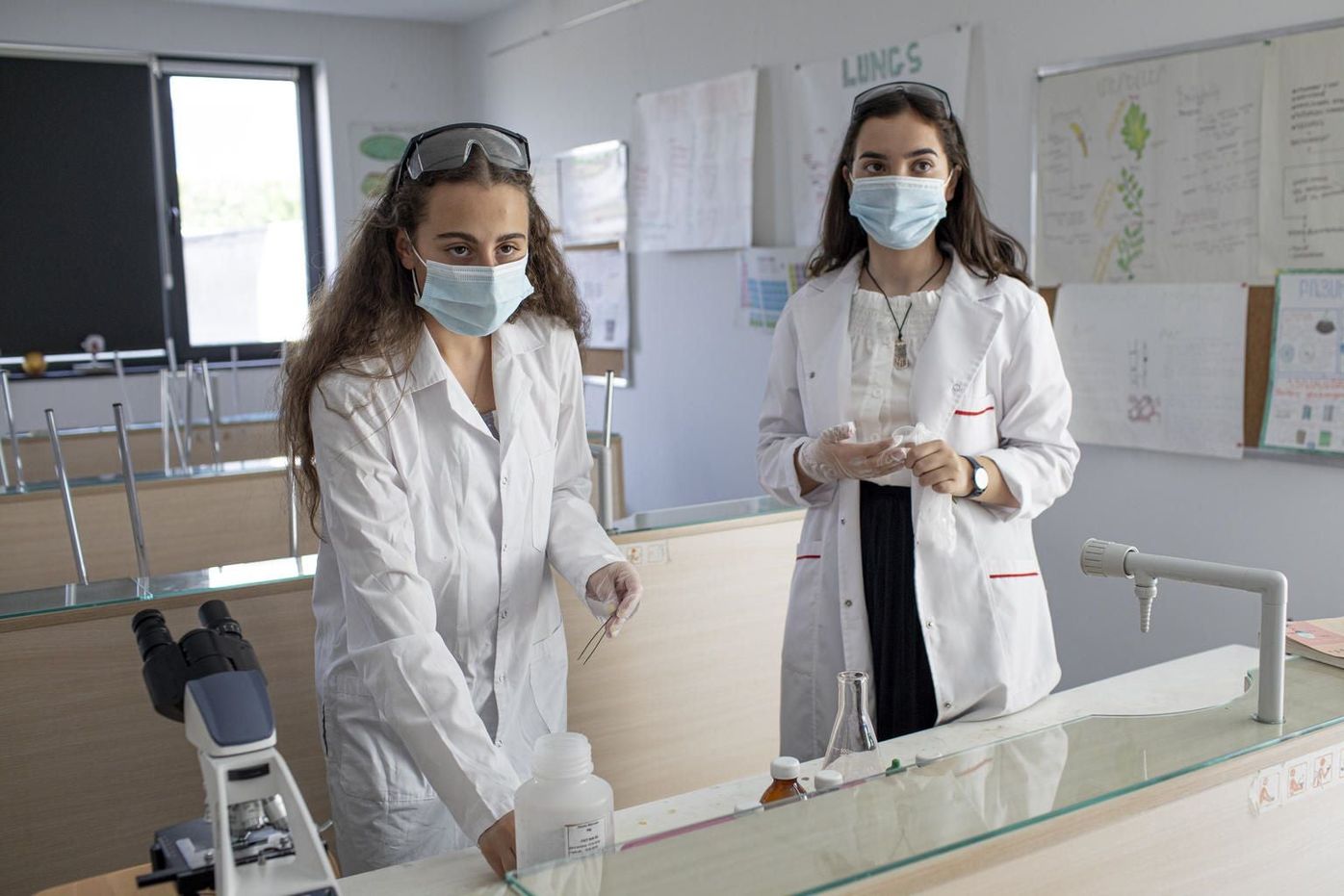copyright @unicef Kazakhstan

Kyrgyzstan
The Science 4 Girls programme engages 15,000-30,000 girls from poor and under-resourced areas, with a focus on girls left behind through migration and from poor ethnic minorities, in a peer training session by 2022 so that they can make informed career choices and have the required skills to break cycles of poverty in their families and communities. The selected 500 girls will be supported to be peer educators and role models for younger girls in their communities
Tajikistan
The programme in Tajikistan is rolled out through the 14 existing innovation labs in the country. The Innovation Labs help adolescents acquire 21st century skills, digital skills, social entrepreneurship skills and access to jobs. For NEET girls, a Tech4Girls curriculum will be adapted and finalized to ensure that girls acquire digital skills. Girls will be linked to employment opportunities in socially responsible digital businesses through a job outsourcing platform. Further, the programme will have components that focuses on digital microwork through a job outsourcing platform and support girls in identifying opportunities in entrepreneurial fashion where girls use their creativity to create handicrafts.
Serbia
The overall objective of the programme is to identify and empower 2,000 young people with skills, opportunities and internship placements, creating the largest young people movement to support private sector enterprises, central and local level institutions and young people. To reach its objectives, the projects seeks to strengthen and address three key areas:Mobilization and empowerment of 2,000 young people to become certified interns.Identify and empower private sector enterprises and other institutions to host young people as a future workforce.Formal arrangement for young people.
Belarus
UNICEF Belarus works with Ministries of Education and Labour and Social Protection and several local NGO partners on a proposal to empower girls and implement a range of activities within policy and capacity building on gender equality, creation of adolescent parliamentarians, 21st century skills and entrepreneurial thinking for girls and young women, and resilience and leadership skills for girls in conflict to strengthen social rehabilitation and resocialization.
Armenia
Impact Accelerator #5, a programme to connect young women and girls to Armenia’s IT/Tech ecosystem and helping them develop startups, new jobs, education, learn new skills and access new financing sources. Under MPTF funding and jointly with UNDP, it targets girls (7-14 years of age) and focuses on tech skills development.
Kazakhstan
UNICEF Kazakhstan and the Science and Technology Park of the Al Farabi Kazakh National University has launched an educational project specifically for girls through the development of UniSat nanosatellites that covers the stages of creating a spacecraft, as well as skills in 3D modelling, PCB design, software and hardware development skills and Linux programming basics and teamwork, public speaking, time management and creativity. Dubai Cares is one of the donors in a partnership with UNICEF to accelerate digital skills under the Generation Unlimited initiative.
Greece
UNICEF Partnership Office in Greece is in the early stages of planning a youth job readiness programme under the Child Guarantee grant. UNICEF Greece is also running a programme on Digital learning empowering refugee girls, providing digital learning for refugee and migrant girls during COVID-19 in partnership with Akelius Foundation.
Bosnia and Herzegovina
The UNDP Economic Governance for Growth Project in Bosnia and Herzegovina, financed by the Government of Norway and UNICEF, is establishing STEM academies through piloted entrepreneurship curricula and fabrication labs in selected primary and secondary schools, thus supporting entrepreneurship development. In addition, the ‘IT Girls’ initiative, with support from UNICEF, UNDP and UN Women, fosters girls’ education in STEM fields, through computer programming, digital communications and website development programmes. The UNICEF office is aiming to scale up this initiative.
copyright @UNICEF Armenia

